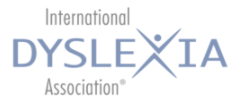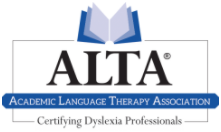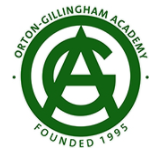Perhaps you’ve noticed your Kindergartener or first-grader reverse letters and numbers as they write. Maybe you’ve heard your second or third grader consistently struggle to read out loud. Or it may be that you’ve witnessed your elementary schooler face difficulties in reading fluency, spelling, or getting their thoughts out on a page. Which of these are “normal” parts of learning to read and which signs indicate a child may need additional help? What do parents need to know about the reading process and what should they do if they suspect their child is experiencing atypical reading challenges?
These are some of the questions I often discuss with parents in my work as Director of the Columbus Children’s Dyslexia Center and address with teachers in my role as the Heath City School District Literacy Coordinator. There are several common misconceptions about dyslexia, and I believe that an understanding of how the brain works and what to look for in a child’s literacy development can serve to empower parents (and educators) in supporting a student’s growth as a reader.
The Brain and Reading
One of the most common misconceptions of dyslexia is that it is related to vision. Many people think of letter and number reversals as the primary “sign” of dyslexia, but reversals are actually a natural part of learning to read. Neuroscientific research explains why dyslexia is not related to vision. Research findings demonstrate that the human brain is hard-wired for oral language, but it is not hard-wired for reading. Reading is not a task that the human brain is able to learn naturally apart from explicit instruction. The skill of reading is acquired when, through explicit, effective instruction, the human brain recycles an area of itself that is traditionally used for object recognition. Given this information, research indicates and literacy experts assert that oral language is the foundation of reading ability. As it pertains to dyslexia, a breakdown in reading ability indicates a breakdown in one’s grasp of the sounds of the language.
So What IS Dyslexia?
The International Dyslexia Association defines it this way: “Dyslexia is a specific learning disability that is neurobiological in origin. It is characterized by difficulties with accurate and/or fluent word recognition and by poor spelling and decoding abilities. These difficulties typically result from a deficit in the phonological component of language [i.e., sounds] that is often unexpected in relation to other cognitive abilities and the provision of effective classroom instruction...”
Student Impact
The ways in which a student is impacted by dyslexia vary. Dyslexia manifests in different ways for different individuals. Students identified with dyslexia may have difficulties with one or more of the following: word recognition, spelling, reading automatically and at an effective pace for understanding, problems in reading comprehension, understanding spoken language, oral or written self-expression, following multi-step directions, attending to the specifics of lengthy conversations, and word retrieval. It can also manifest itself in fluency of reading, letter-sound correspondence, understanding structure of language, and needing/taking more time on schoolwork.
Possible Signs of Reading Deficit
At the elementary school level, there are signs that parents can watch for as they read with their children. The following are some of the possible signs that an elementary student may have dyslexia:
- Difficulty segmenting words into syllables and sounds
- Slow in acquiring letter-sound correspondences
- Struggling to sound out words
- Disfluent or choppy reading
- Guessing at words while reading and/or filling in the blank with what makes sense to them (guesses may or may not have similar sounds)
- Weak spelling skills
- Difficulty recalling
- Word retrieval (words “on the tip of their tongue”)
Steps Toward Evaluation
If a parent suspects that their elementary-aged child has dyslexia--or any type of learning disability--the place to begin is at the school. A parent is able to request an evaluation at any time. While a school is not legally obligated to evaluate, if they choose not to then they must respond with the why. If the school does evaluate and you do not agree with their findings you can request an independent evaluation. The school is responsible for covering some of the costs of the evaluation and that is dependent on the board policy; the amounts vary by district. If the district will not evaluate a student, parents can seek a private evaluation. The International Dyslexia Association Central Ohio chapter provides a list of organizations and individuals that offer private evaluations. (There is always a fee associated with that and they vary. Marburn Academy offers free screenings.) There are also many private tutoring options available, and there are lists of local tutors available online.
A Bright Future
Though there is no “cure” for dyslexia, there is a hopeful aspect of a diagnosis of this specific learning disability. Children identified as dyslexic can learn to read. The key to this positive prognosis is early, effective intervention. I recently worked with a young boy who was identified as having a deficit in the area of basic reading. He received explicit, systematic reading instruction to address his weaknesses. By the end of third grade, his reading abilities were reassessed and he no longer qualified for services. This is just one example of many students who, through effective instruction and intervention, are able to vastly improve their reading abilities.
Additional Resources
To learn more on this topic, check out the following resources:
In ternational Dyslexia Association
ternational Dyslexia Association
 Academic Language Therapy Association
Academic Language Therapy Association
[Editor's Note: To learn more about dyslexia and hear more from the author of this post, make sure to check out the "Navigating Your Child's Education" podcast episode "Demystifying Dyslexia."]
/Logos/Horizontal%20Academic%20Logo%20for%20Light%20Backgrounds.png)
/Logos/Horizontal%20Academic%20Logo%20for%20Dark%20Backgrounds.png)

 Orton-Gillingham Academy
Orton-Gillingham Academy.jpg?width=100&height=100&name=Copy%20of%20Blog%20Authors%20(5).jpg)

